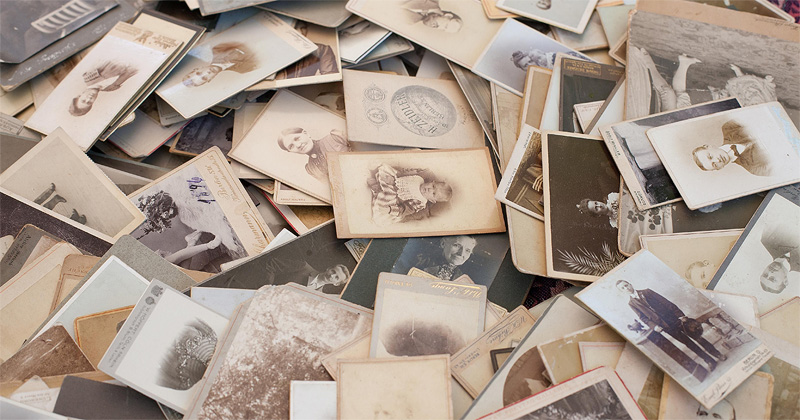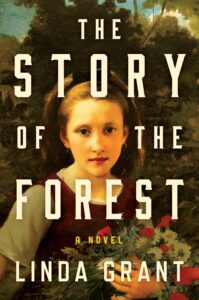
Fictionalizing Family: On What’s True and What’s Invented About Our Origins
Linda Grant: “We are all made up of private family legends, we are all novels in the making.”
I was not born Linda Grant. First I was Ginsberg. “I’m probably related to the poet,” I boasted when I grew old enough to value lies and exaggerations. My father arrived in England as a baby with his family as part of the waves of turn-of-the century Eastern European pogrom immigration. His father had deserted from the Russian army and as family legend told it, changed his name from (possibly Rosen?) to Ginsberg to evade capture.
This story, rooted in the history of persecution and flight, was assumed by me to be true until one of my older cousins suggested that, on arrival in Liverpool, they had made their way to the Jewish neighborhood of Brownlow Hill and took over the name Ginsberg from the rent book of the house they moved into. So how did I become Grant when I was three years old? In frightened response to an anonymous threatening letter signed “Anti-Jew?” Or to disassociate the family from a rogue brother who had embezzled from the family business? There was patchy agreement that Grant was chosen in homage to the whiskey bottle.
My family constructed their identity as immigrants in a new land by fabricating their circumstances.
I was brought up with the great truth, “always tell the authorities what they want to hear”—the immigrant’s charter. Honesty and integrity were luxuries you couldn’t afford when you’re escaping from what would become, for those left behind, inevitable elimination. I learned from my parents that the ability to tell a good story was both a pleasure and necessity. There were few family documents; even the official entry on the 1911 census should be taken with a pinch of salt. My father had no birth certificate, there was no family bible or parish records.
What was left behind in Poland was lost forever so they had every opportunity to reinvent themselves. Ages were massaged to evade conscription. The tales they told were marvelous and invariably several degrees shy of the truth. I heard how my uncle Louis was lying almost dead on a First World War battlefield when his life was saved by another Jewish private who kept him awake through the long night by talking incessantly on the advice of a doctor who said that if the patient lost consciousness he would die. A twelve-hour filibuster ended with the soldier taking from his wallet a photo of a teenage sister and promising that if Louis survived he could marry her. Reader, he did. I heard this tale from one of their children. Later, when I recounted to his sister, she said, witheringly, “Who told you that?”
The Ginsbergs were people with a lot of imagination and what greater gift could a would-be novelist hope for than to fix the listener with a glittering eye and tell a story? Stories might be tragedies, or they could be jokes. They were fictions, they were legends, the old world of Cossacks and shtetls might as well be a fairy tale, a Chagallian dream scene. Facts were of little use. My family constructed their identity as immigrants in a new land by fabricating their circumstances. Why I am English, not American? The standard story of English Jewish immigrants is that we bought and paid for a ticket to New York, but unable to read the writing on it discovered we were only going as far as Hull or Grimsby. It was said that my grandfather walked around the Liverpool waterfront in a daze at the magnificence of what he thought was Manhattan. But everyone’s grandfather told the same story. What do I believe? What does it matter? If it’s a good story, it’s a good story.
Sometimes the shock of the factual burst through the fabrications and half-truths. Aged ten, I answered the phone on a Sunday morning, the time when my parents mysteriously locked the bedroom door. A woman’s voice asked to speak to Daddy. I primly announced that she had the wrong number. “Is that Linda?” she replied, pleasantly. “Haven’t they told you about me?” That was how I found out about my father’s first marriage and the existence of my half-sister, a glamorous woman twenty years older than me whom I only met twice: she was the great unspoken one.
My father’s life before I was born is one epic tale of possibilities and improbabilities. The son of a baker, he was sent away to sea at the age of seventeen and appears on an Ellis Island ship’s manifest as “Jew cook.” Alighting in New York he jumped ship, became an illegal immigrant. Wandered the streets of Manhattan, hungry, until Harry Houdini took pity on him and brought him back to his house for a square meal. Am I really supposed to swallow that? Then he was running beer across the Canadian border border during Prohibition. Then he was working in a barber’s shop on Central Park. Then he was working for the Toni hairdressing corporation and came back to Liverpool just before the Wall Street Crash with the purloined formula for cold wave, a form of perm lotion, in his pocket. Who could prove any of this was true? When I first saw, on my computer screen, his name on the Ellis Island site, I gasped. A fact, at last, a leakage from fairy tale land.
Now it is all fiction, the world of my forefathers the dense thicket not of history but fairy tale.
When I left school I became a journalist. Facts were supreme, give us nothing else, my editors warned. I would interview people and ask them to tell me their story and as they were recounting it, I would think, “I could tell that better.” I’d move around the sequence of events to create a narrative arc, give protagonists more lines or less and ease up on the moralizing. At home, transcribing the tape, I’d listen to their sentence structure, the idiosyncrasies of vocabulary, remember how they sat in their chair, hunched, languid, self-possessed, biting a lip or smoking a cigarette. I heard tremendous stories from people who could be characters in fiction, but I was tacked down on all four corners by the nails of factual accuracy.
In the end I broke free and wrote my first novel. In my latest, The Story of the Forest, I committed the Ginsberg stories for the first time to print. Fictionalized, of course, and given to a different family: the soldier saved on the battlefield, the changes of name, the stories that reverberate down the generations until they cease to become memories and are transformed from the base metal of fact to the gold of myth and legend, forever out of reach of the power of fact-checking. A young girl on the eve of the First World War, leaves her home on the edge of the Baltic Sea and walks into the forest where she meets a gang of Bolsheviks and her life is changed forever. For the whole of her long life this story will profoundly affect her children and grandchildren. Is it true? Who knows? My mother was one of six who married one of six. At the end of her life she had dementia. Her failing brain was the final repository of the past. Now it is all fiction, the world of my forefathers the dense thicket not of history but fairy tale. We are all made up of private family legends, we are all novels in the making.
__________________________________

The Story of the Forest by Linda Grant is available from SJP Lit/Zando.
Linda Grant
Linda Grant is an accomplished British novelist, whose books have won the Women’s Prize and been shortlisted for the Booker, and is known for writing about the Jewish experience. She lives in London.



















